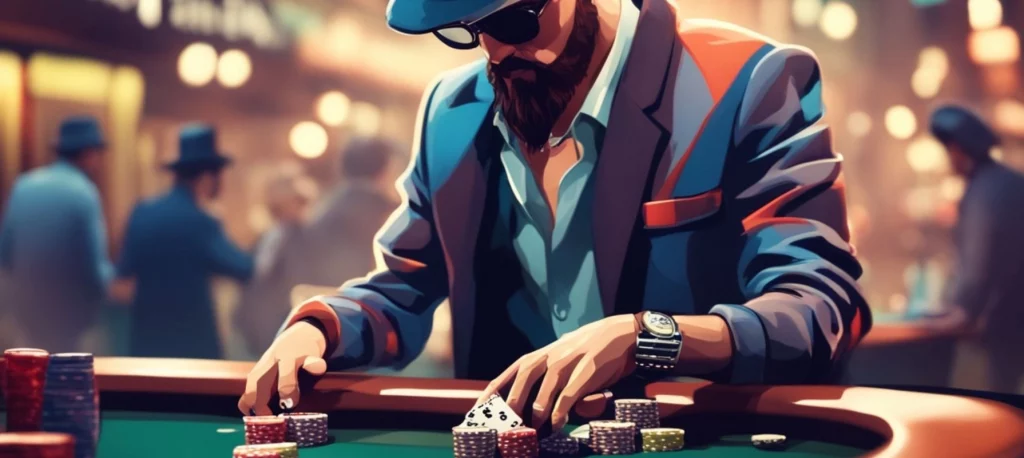
Free vs real money gambling: What’s the difference?

Here’s the first thing rookies get wrong, they assume free gambling is just low-effort practice, and that real money gambling is where the real fun begins. That’s way too surface-level, and if you think like that, you’re gonna miss some serious nuance.
Free gambling, also called demo play, is about learning the tools of the trade without burning cash. It’s like dry-firing a weapon to get used to the weight and mechanism. No pressure, no recoil. Real money gambling, on the other hand, introduces risk, emotion, and true behavioral tells. These two experiences activate different parts of your brain, and if you don’t understand that, the roulette wheel will eat you alive.
Contents
Understanding mechanics without risk
Free modes were my go-to in the early days of crypto slot mechanics. Back when provably fair algorithms were still cutting their teeth, I’d use demo rounds to read behavior, volatility, dead spins, bonus triggers. It’s pure sandbox testing. Want to test a 100-spin cycle to see if a strategy holds water? Do it in demo. It’s the perfect lab.
Playing free doesn’t just teach the buttons; it teaches rhythm. Most average players never stop to measure spin delay or bonus warm-up patterns. And without putting money down, you can actually afford to watch and note this stuff.
Limits of free simulators
But let’s not lie to ourselves, the moment you shift to real money, all the free-time muscle memory may fail you. Why? Because of emotion. Risk brings in tremors, and tremors wreck timing.
In my experience, new players who practice too long in free mode become overconfident. Then they take the same strategy, add pressure, and it crumbles. That’s particularly true on high-volatility slots and anything with dynamic multipliers.
The reality of real stakes
Now we’re into real money territory, where even a 20-cent decision can get your pulse racing. Here’s the kicker: real money introduces cognitive load. You second-guess, rush spins, chase losses. These weren’t problems in demo mode.
That’s why psychological discipline becomes more valuable than any bonus feature. Sites offering high-quality welcome bonuses often know this too well. They tempt you with credits, then test your restraint. Know your limits, both financial and emotional.
Real wins, real losses
One thing players underestimate is the thrill of a real win. A €500 demo win? Cool. A €500 real one? That can buy groceries. Or a night out. Or buy back yesterday’s losses. But that also means real loss stings more, and bad habits develop fast.
At casinos like those that support Citadel, where real cash flows quickly in and out, you’ll learn budgeting the hard way if you’re not careful.
Player psychology and game formats
Here’s a brutal truth: the same slot game behaves differently when it smells money in the pot. I’ve tested over 200 RNG titles side-by-side, demo vs paid, with careful logs. The hit frequency, while technically identical over the long haul, *feels* different under pressure. That’s no accident.
Game shows are particularly notorious for this effect. Just check out some of the most popular game show formats. You’ll see how they ramp up anticipation through mini-bonuses and near-misses. In demo mode, you don’t bite as hard. But in real money? Your lizard brain takes over.
Bonus structures and wagering
Always read the fine print. Bonus terms in real play have teeth, wagering requirements, game contribution percentages, and withdrawal caps. These things don’t exist in demo land. That’s why many newcomers get burned when their ‘bonus winnings’ vanish after failing a 35x requirement.
Want a smooth intro to bonus dynamics? Use a reputable welcome promotion with low max bet caps and transparent rollover rules. Don’t guess. Know before you spin.
The decision-makers’ toolkit
Let me tell you something most folks miss, free gambling, when done without discipline, still trains bad habits. Mindless clicking, not reading paytables, rapid auto-play… All of that becomes muscle memory. And then you enter real mode with those same habits, thinking you’ve got it down. You don’t.
That’s why I always treat free mode spins like real trials. Set budgets, set goals, track results. You’re not there to kill time, you’re engineering muscle, just without the fuel cost.
Know exactly when to upgrade
The transition to real money should come only when you’ve logged data. Not guesses, data. Volatility patterns, session ROI, bonus triggers per 100 spins.
When I trained a group of crypto-developers designing DeFi-integrated casino logic, we spent a week just playing free spins, annotating every result like lab scientists. That’s how you anchor strategies before cash bleeds out.
If that sounds tedious, you’re not cut out for high-level gambling. Go back, remodel your expectations, and maybe start with something like a low-stakes drop-and-win format to learn pacing.
Wisdom from the trenches
Neither free play nor real money play is inherently better. They’re tools. One sharpens your mind, the other tests your heart. If you want to survive, hell, if you want to thrive, in this field, you need both in your arsenal.
Avoid shortcuts. Respect the rituals. And always remember: a skilled player sees through the spin, but only when they’ve trained without blinders, be it with paper chips or crypto stakes.
 Related Blog posts
Related Blog posts

